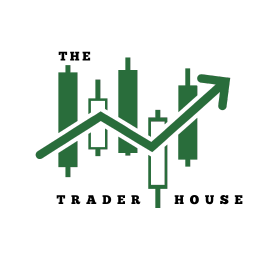
Understanding Important Economic Events This Week 03.24.25
Today, I’m excited to dive into key trading events that not only shape the financial market but also help new traders, like yourself, make informed decisions. If you’re new to trading, you know that information is your ally. Understanding how economic events (news) affects stock prices can be your shortcut to trading wins.
The Impact of Economic Indicators
Let’s talk about the USD Flash Manufacturing PMI. If you’re scratching your head wondering what that really means, don’t worry. PMI stands for Purchasing Managers’ Index, a key indicator of the economic health of the manufacturing sector. For March 24th, 2025, this figure is expected to rise from a previous 51.0 to a forecasted 52.7. But why does this matter to you?
When the PMI is above 50, it suggests economic expansion, which is generally good news for the stock market. Investors might feel more confident, potentially driving stock prices up. Meanwhile, a PMI below 50 may raise concerns about a contracting economy. If the PMI comes in higher than expected, it could indicate stronger production levels, encouraging investors to buy more stocks, possibly pushing the market higher. Conversely, a lower PMI result may lead to caution, with investors pulling back.
For more in-depth insights, you can check the Manufacturing PMI details on Investopedia.
Speaking of FOMC
Later in the day, at 1:45 pm, FOMC Member Raphael Bostic will be speaking. Now, if you’re wondering about the FOMC, let’s simplify it: the Federal Open Market Committee plays a crucial role in determining US interest rates and the money supply. When any FOMC member speaks, traders hang on every word to glean hints about future market directions.
Bostic’s speech could give clues about upcoming monetary policies. These speeches often affect stocks, bonds, and even currencies. If Bostic hints at raising interest rates to control inflation, it might lead to decreased spending and investment, resulting in lower stock prices. You want to keep an eye on such speeches to anticipate shifts in market sentiment.
For more details on how the FOMC influences the economy, visit our detailed guide.
Practical Steps for New Traders
So, how do you, as a new trader, use this information? Here are some practical steps:
- Stay Informed: Note the times of key announcements and understand what they might mean for the stock market.
- Use Economic Calendars: Keeping track of events with economic calendars helps you prepare in advance.
- Analyze Trends: Compare past data and forecasts. This helps in building a strategy about how the market might react.
- Start Small: As you learn, trade in smaller amounts to minimize risk while building your confidence.
- Join Trading Communities: Engage with other traders for insights, similar to how we gather here.
Continue Your Journey
Trading is an incredible journey, and staying informed is a significant part of mastering it. If you’re eager to deepen your trading knowledge, we invite you to subscribe to our email list and follow us on social media. By doing so, you’ll get daily updates and tips to enhance your trading skills.
Ready to shortcut your learning curve and achieve quick results? Our exclusive trading course is designed for traders keen to comprehend market dynamics more swiftly. Click the link below to start your path to becoming a market-savvy trader.
To sum it up, understanding news-related events can lead you to better trading decisions. Keep learning and connecting with informed traders, and you’ll be on the right path.
For further reading and sources, check out more of our posts at blog.thetraderhouse.com.
Happy Trading!









3 Comments
Pingback:
Pingback:
Pingback: